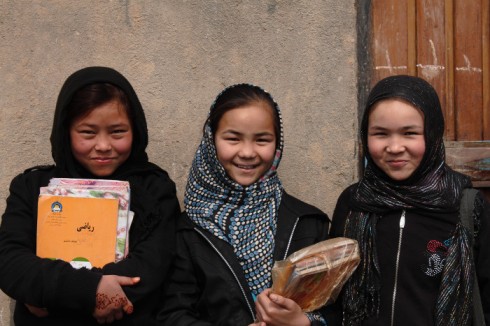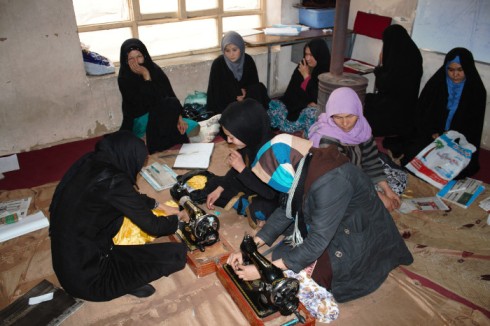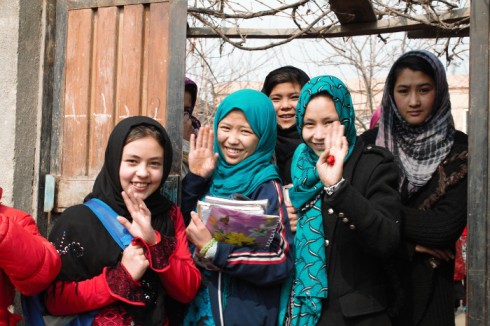After three years, with these five latest CBECs, Children in Crisis has been able to help women become conscious of their identity, of their society. Some will accept that world, some will contest it, and some, or the daughters of some, will slowly, gradually, change it.
This month, classes at Children in Crisis’ current five Community Based Education Centres (CBECs) project in Afghanistan, came to an end. We are now working on opening Centres within other communities that need their support.
Every community project comes to an end and interventions, however long, can never be permanent. These five latest Education Centres run by Children in Crisis have been incredibly successful, helping women and children to access basic education. 300 children, mostly girls, from some of the poorest communities in Kabul have been able to gain a full primary education despite never having previously been to school. In addition, over 1,000 women from these communities have learned to read, write, and develop other critical skills at the CBECs.

The girls and women who came to our five Education Centres will be better off, not only because they have learnt to read, but because they will be granted access to a world of opportunity and hope.
For the girls who came to these Centres they will be half as likely to marry before their 16th birthday, and far less likely to be a mother before the age of 15. The women will be twice as likely to have their own children live past the age of five, and for every year of schooling will have a 20 per cent increase in household earnings.
However, the benefits of these centres go beyond statistics. The girls and women who came to these five Education Centres will be better off, not only because they have learnt to read, but because they will be granted access to a world of opportunity and hope.
From extensive research done around the world, we know that girls who learn to read and write will be more likely to work, to support their families, and to be economically independent. But the realities of life here in Afghanistan pose an added barrier to this empowerment. The lack of access to education for girls in Afghanistan was always a symptom of broader gender inequalities and reflected deep social norms inhibiting their participation in not only schools, but also in society and communities as a whole.

Our Education Centres provided a space for women to be safe, to be collective, to have a voice – literally to speak.
Reducing education to its rate of return is simply inadequate as a measure of impact in Afghanistan. Instead we need to look closer, to look harder at what education actually means to children and women of these communities. Paolo Freire showed how education allows people to be able to read the world – to describe, and then define, their contexts – to be truly conscious.
As I spoke to women in the CBECs it was clear that, despite progress made, their world is still not one of open opportunity. However, the Community Education Centres offered something more – ‘A place to gather’ was the most common response; ‘a chance to leave the house’; ‘to be outside’. Many said it was where they could share experiences with other women. Our Education Centres provided a space for women to be safe, to be collective, to have a voice – literally to speak. In these rooms women had power, and through shared experience they could develop resilience.
One Community Education Centre is not going to break the deep-rooted structures of gender inequality in Afghanistan, but it can begin a process and encourage dialogue where women have a space to assert themselves and develop their own identities. The skills of reading and writing can then empower that identity, allowing someone to use a telephone, read a medicine box, or help a child with their homework.

Children in Crisis’ latest Education Centres have been incredibly successful, helping women and children (mainly girls) to access basic education.
Children in Crisis will be opening new CBECs in other marginalised communities over the coming year, taking a model that we know works and expanding it to reach even more women and children. We will work in areas where others don’t go, meaning the challenges will be greater and the achievements relative to just how deprived these communities are.
After three years, with these five latest CBECs, Children in Crisis has been able to help women become conscious of their identity, of their society. Some will accept that world, some will contest it, and some, or the daughters of some, will slowly, gradually, change it.
Children in Crisis has currently been able to find support for two new Community Based Education Centres. We are still seeking funding to help us open the remaining three Centres within communities whose children and women need assistance. If you, your company or Charitable Foundation think you could help, please email Peter on peters@childrenincrisis.org

Leave a comment